Resources
Understanding the Colombian Peace Process.
We continuously curate resources to better help new and seasoned readers make sense of the peace process in Colombia, as well as to understand the spirit of the Observatory which is infused with the Jesuit's mission.
The commission seeks to shed light on the patterns and causes of the internal armed conflict to satisfy the right of victims and society to the truth, it promotes the recognition of what happened, coexistence in the territories and contribute to lay the foundations for non-repetition, through a process of broad and plural participation for the construction of a stable and lasting peace.
The Commission is composed of eleven people who act as a collegiate body; Their task is full time and exclusive. They were chosen by an independent jury of the government and it's parties through a public call, under the criteria of experience, commitment, and knowledge of the Colombian armed conflict.
These are its members:
- FRANCISCO JOSÉ DE ROUX.
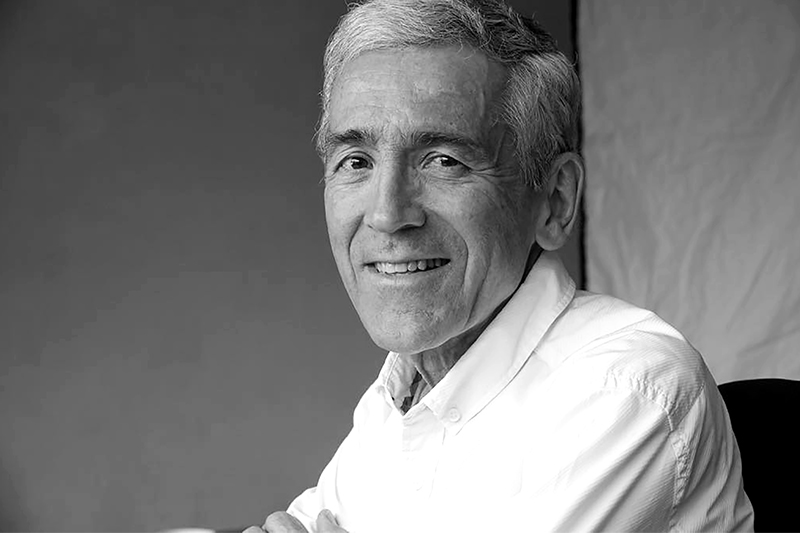
Priest and ex-provincial Jesuit, philosopher, and economist. He is the founder of the Magdalena Media Development and Peace Program, as well as the first peace laboratory in Colombia, and is the former director of CINEP, among other tasks carried out. He is the president of the Commission.
- ALEJANDRA MILLER.
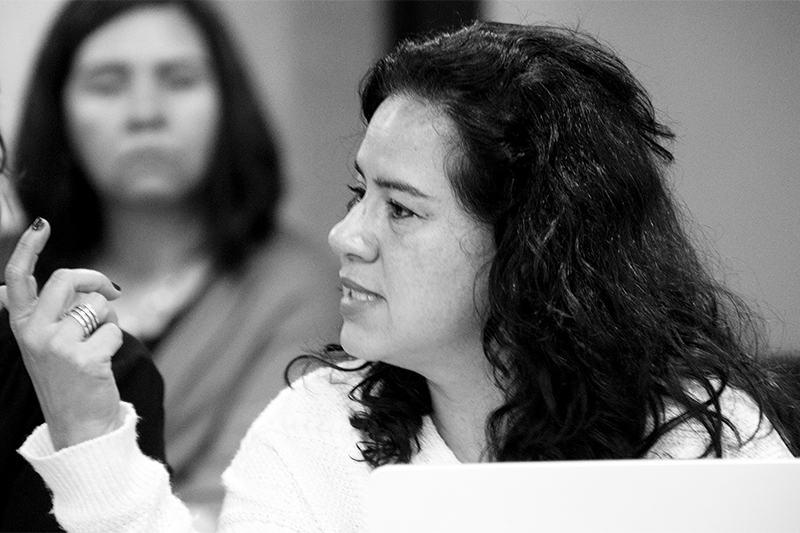
Leader of the feminist movement in Colombia. Economist with a master's degree in political studies; researcher and university professor, ex-secretary of the government of Cauca and member of the Pacific Route of women.
- ALEJANDRO VALENCIA VILLA.
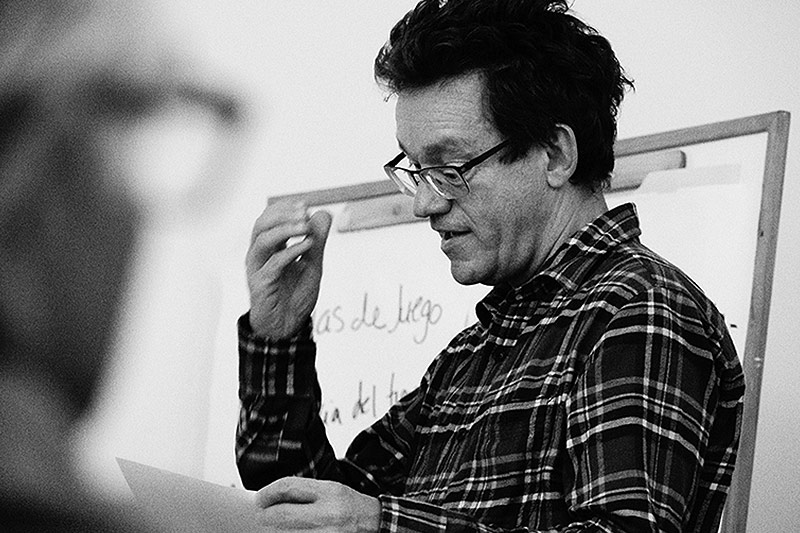
A lawyer with nearly thirty years of experience in the promotion and defense of human rights, with a vast experience in historical truth issues. He has been an advisor to multiple truth commissions in the world.
- ÁNGELA SALAZAR.
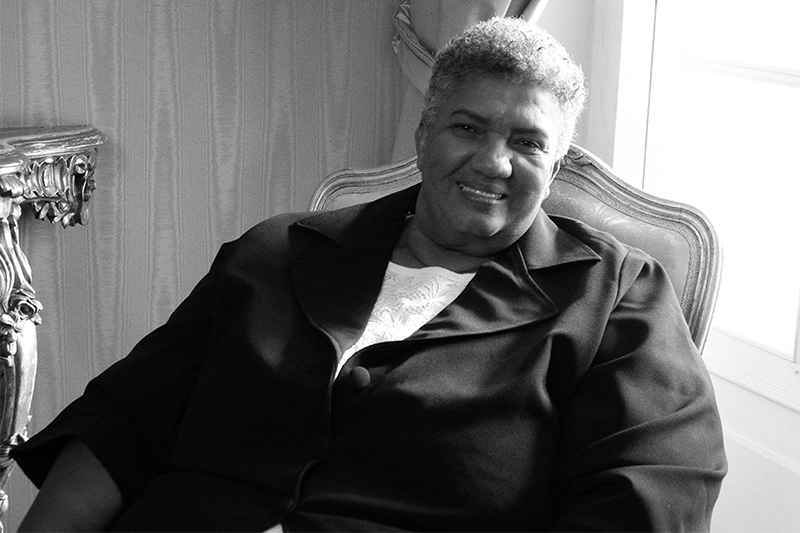
Equality Conciliator and Defender of Women's Rights. and community leader. Promoter of the causes of banana workers and domestic workers. Member of the Alliance Initiative of Colombian Women for Peace. Their commitment is to make visible the truth of the black, Afro-Colombian, Raizal and Palenquero people.
- ALFREDO MOLANO BRAVO.
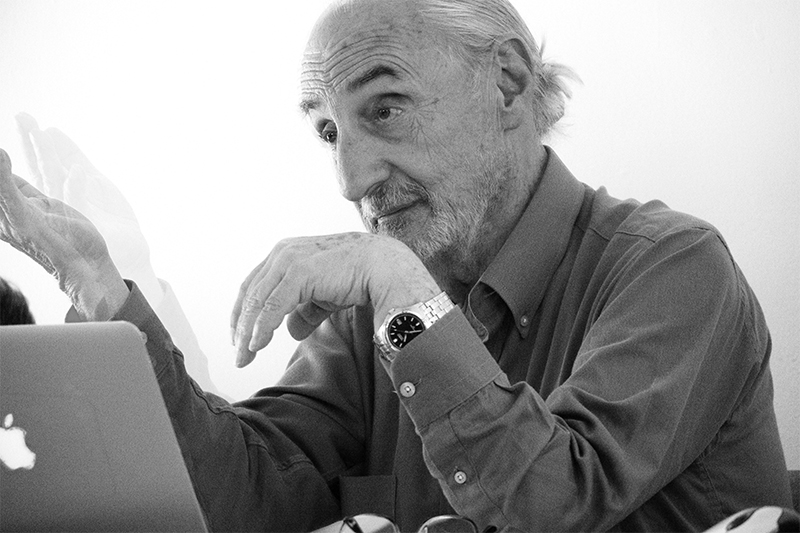
Sociologist, honorary doctorate, columnist, chronicler and writer of about twenty books on the origins and impact of the armed conflict in Colombia.
- MARTA RUIZ.
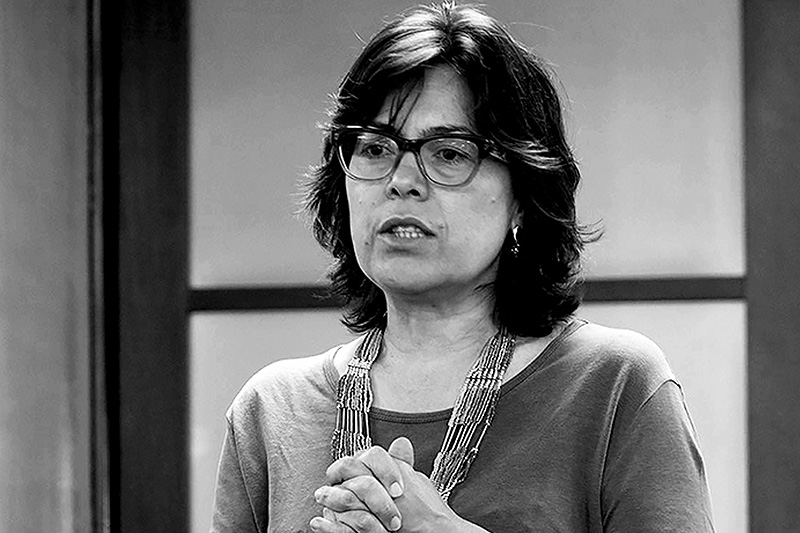
A journalist with more than fifteen years of experience covering the internal armed conflict, both in the press and on television. Her work has deepened in the analysis of rural development issues, the dynamics of war, the defense of freedom of expression and the right to information.
- CARLOS MARTIN BERISTAIN.
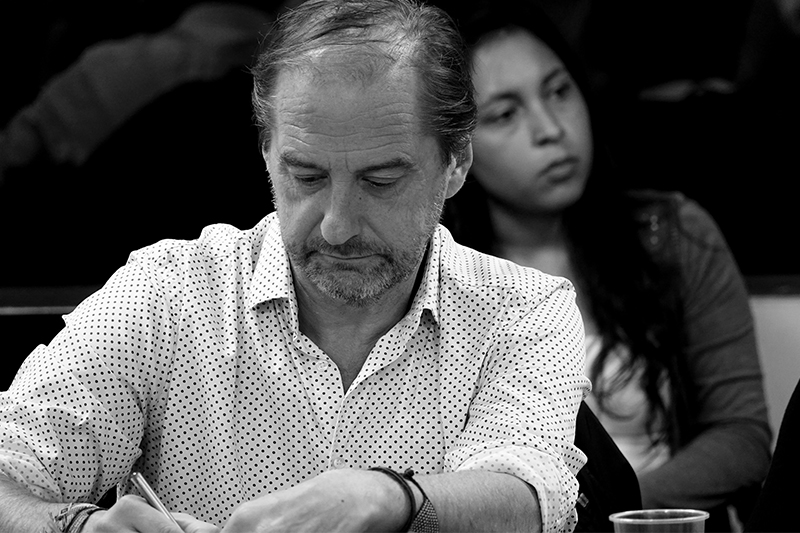
Spanish doctor and psychologist with vast experience in the psychosocial care of victims in the world and as an advisor to several truth commissions in different countries. Coordinated the report Recovery of Historical Memory - REMHI, of Guatemala.
- LUCÍA GONZÁLEZ.
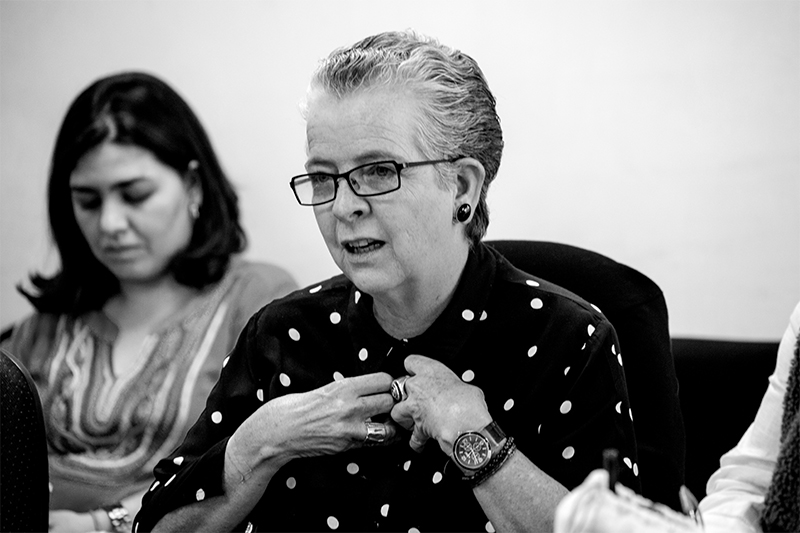
Architect, former director of the Casa de la Memoria Museum in Medellín. She has extensive experience in the formulation of projects related to culture and social transformation. She has directed public and private cultural and social entities.
- CARLOS GUILLERMO OSPINA.
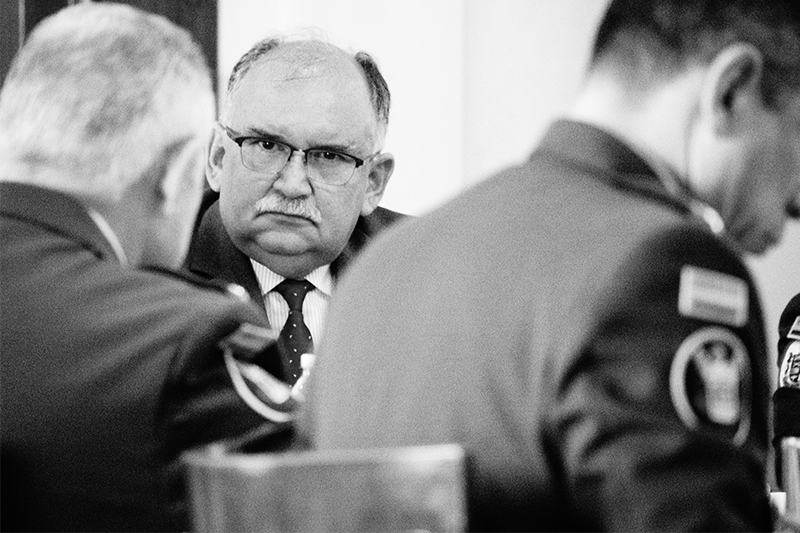
Major retired from the army, lawyer and professional in military sciences, in law and in business administration, with specialization in security administration and military intelligence. He leads the Colombian Association of Military Victims of the Armed Conflict since 2013.
- PATRICIA TOBÓN YAGARÍ.
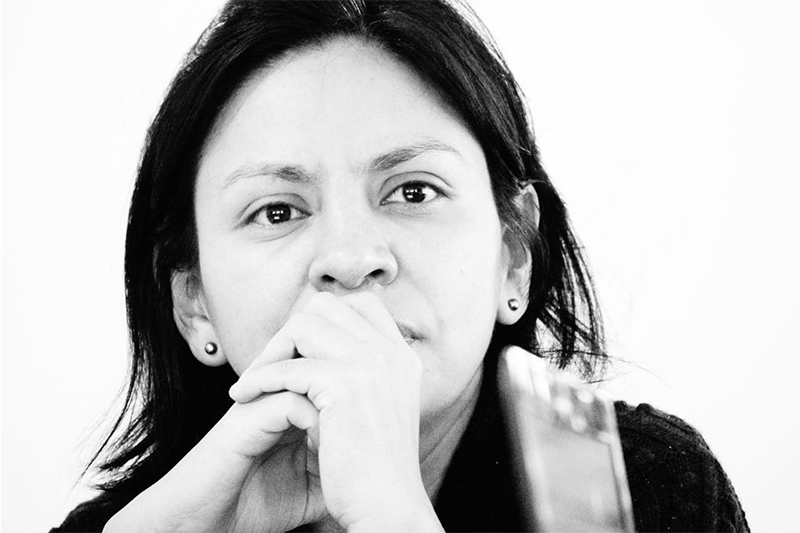
Indigenous Embera, a lawyer specialized in constitutional law. She has documented the violation of human rights in the indigenous territories of the country that have been affected by the armed conflict, as well as the patterns of discrimination against ethnic peoples.
- SAÚL FRANCO.
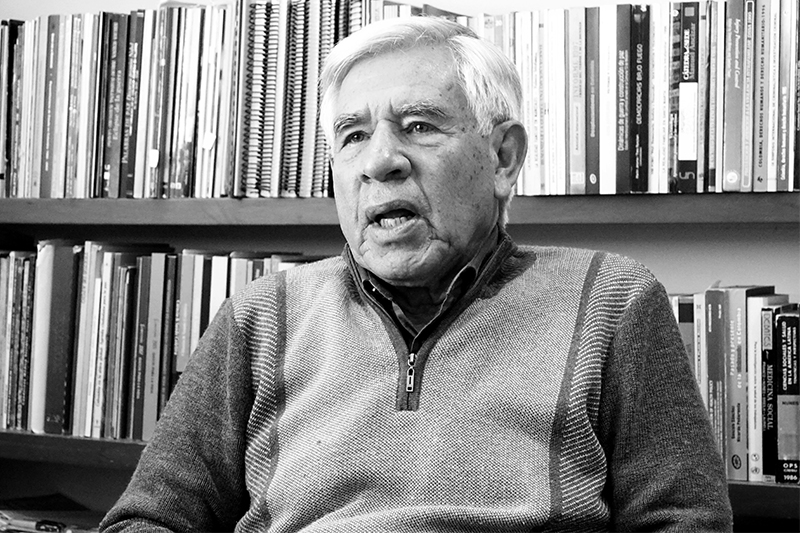
Doctor with a doctorate in public health, with forty years of experience as a university professor and researcher of violence and armed conflict and its impact on the life and health of people and communities.
This short video explains how the Javeriana University in Cali is working in collaboration with the Truth Commission to bridge the divide between factions as they work for peace.
Universal Apostolic Preference of the Society of Jesus, 2019-2029.
The Observatory is guiding its work by the Jesuit's apostolic preference.
Colombian photojournalist Jesús Abad Colorado shares the stories behind a series of civil war photographs he captured throughout the '80s and '90s.
Twenty months after a landmark peace agreement with the Revolutionary Armed Forces of Colombia passed the country’s Congress, the implementation of peace remains fragile. One of the issues at the heart of it all is a newly installed JEP (Special Jurisdiction for Peace), an extrajudicial court system to try ex-rebels and others for their various crimes during more than five decades of armed conflict.
The ideology behind transitional justice is notably not punitive but restorative, meaning that it aims to put victims of the conflict front and center and can include reparations for them, a commitment to truth, acknowledgment of perpetrators’ culpability, and prevention of future violence. Those who are tried via the JEP typically can receive lighter sentences than they would under ordinary law, and in some cases have smaller crimes pardoned. The crux of the debate around the JEP and transitional justice is if this structure does indeed provide justice and if it is in line with Colombian and international law.
Download the ABC's of the Special Jurisdiction for Peace here.
Three years after negotiating a landmark peace agreement with the Colombian government, a top commander of the now-defunct FARC guerrilla group has called for “a new stage in the armed struggle.” In a 32-minute online video posted Aug. 29, FARC second-in-command Iván Márquez appeared with other rebels in fatigues to announce that their dissident FARC faction would renew its insurgency.
“The state has not fulfilled its most important obligations,” Márquez said, saying the group aims to install a new government in Colombia that will support peace. He does not represent all former FARC guerrillas. The FARC’s top commander, Rodrigo Londoño, who briefly ran for president last year, tweeted that “more than 90% of ex-guerrillas remain committed to the peace process.”
“War cannot be the destiny of this country,” he wrote.
How did Colombia’s fragile peace unravel?
Human Rights Around the World
The Arrupe Observatory chose the Colombian peace process as the main focus of our work. However, we are committed to following the news of Human Rights and curate resources for our community and readers to better understand those issues.
Opposition calls for a return to the streets as talks between government and civil society leaders stall
Nicaragua's Bishops Conference appeals for reconciliation between the Government of President Daniel Ortega and the protesting Opposition, in order to build a better future for each and every citizen. The appeal comes in a statement issued on Sunday, as part of National Independence Day Celebrations.
Nicaragua is experiencing a repressive wave with extrajudicial executions and actions to intimidate the opponents of the government of the socialist Daniel Ortega, activists and opposition leaders said Friday.
We welcome the UN high commissioner’s strong report, which includes key information on the major human rights problems in Nicaragua. This includes not only impunity for last year’s crackdown on the streets, but also ongoing human rights violations.
Prisoners jailed for their role in anti-government protests were released Monday and Tuesday, including journalists and activists